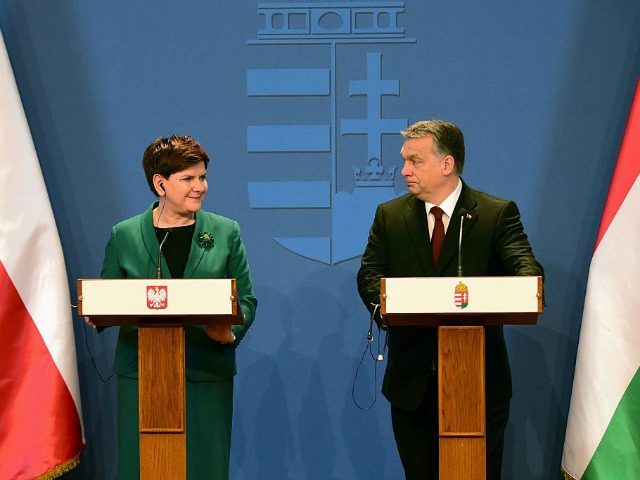An unprecedented attempt by the European Union’s unelected executive to alter national policy in Poland, on the basis of supposed “rule of law” deficiencies, will end in failure, as Hungary refuses to support sanctions.
The European Commission was attempting to unravel reform measures introduced by the conservative Law and Justice Party (PiS) to “undo corrupt, communist legacies”.
Before being swept out of office, the europhile Civic Platform Party (PO), which provided the European Council with its current president, Donald Tusk, attempted to pack the country’s Constitutional Tribunal with sympathetic judges. PiS cancelled these appointments on coming to office and appointed replacements, in an effort to achieve a semblance of balance.
These actions, coupled with similar efforts to tackle bias within Poland’s state broadcaster, led to the European Union’s central organs launching an investigation into “democracy and the rule of law” in Poland. Punitive measures were threatened if the elected government would not reshape its policies in line with EU demands before the end of February 2017.
However, while Frans-Timmermans, the Dutch socialist who serves as Vice-President of the European Commission, called on “The member-states and the Commission to stick together” so Poland could be brought to heel, Hungary’s populist government has made it clear they will withhold their consent from any attempt to impose sanctions, which require unanimity.
The two countries have been a thorn in the EU’s side since Law and Justice swept to victory in the Polish elections, becoming the first party to win an outright majority since the fall of the old communist regime.
Hungarian Prime Minister Viktor Orbán and PiS chairman Jarosław Kaczyński have even pledged to lead a “cultural counter-revolution” in the bloc, strengthening national governments against the Brussels bureaucracy and reigning in the European establishment’s enthusiasm for mass immigration.
“There is a saying in Hungary that if you trust somebody, we say ‘you can steal horses together’,” Orbán said at a joint public conference last year.
“There are a few stables, and one particularly large one called the EU, where we can steal horses with Hungarians,” replied Kaczyński.
A stronger voice for Central Europe in the EU could be good news for the United Kingdom.
Polish Prime Minister Beata Szydło wrote in November 2016 that “Poland stands ready to help its old friend Britain reach the best possible Brexit deal”.
Kaczyński has since confirmed that, while some member-states “want to make it as tough as possible for the United Kingdom”, he is determined to lead an alliance of countries promoting “very close and friendly relations” during the exit negotiations.

COMMENTS
Please let us know if you're having issues with commenting.